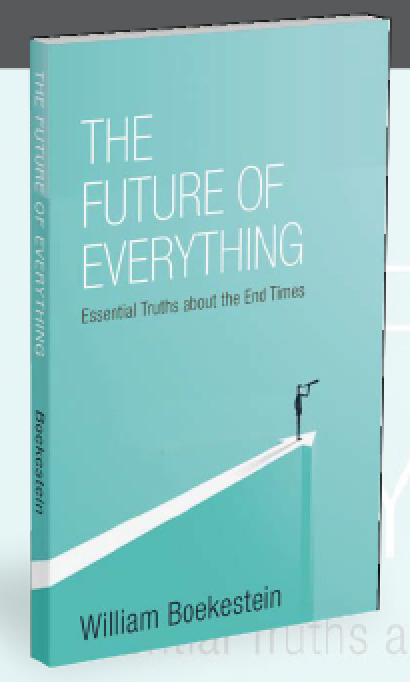The Future of Everything: Essential Truths about the End Times, William Boekestein. Grand Rapids: Reformation Heritage Books, 2019. Paperback. 160 pages.
Reviewed by Mr. Charles Ray McNinch
The “theory of everything” describes the scientific quest to explain all reality. In the science of theology, eschatology is the biblical explanation of the history of humanity in light of God’s  ultimate destiny for all things. Commonly referred to as the doctrine of the end times, eschatology is not meant to be a segregated article of faith. As Pastor William Boekestein explains in his new book, The Future of Everything: Essential Truths about the End Times, “eschatology is meant to be understood as the glorious consummation of God’s will for everything”—a lens through which the whole of Christianity may be comprehended.
ultimate destiny for all things. Commonly referred to as the doctrine of the end times, eschatology is not meant to be a segregated article of faith. As Pastor William Boekestein explains in his new book, The Future of Everything: Essential Truths about the End Times, “eschatology is meant to be understood as the glorious consummation of God’s will for everything”—a lens through which the whole of Christianity may be comprehended.
From Christ’s ascension to his glorious return, the New Testament church lives in a kind of eschatological tension described by Herman Ridderbos as “the already and the not yet.” Rev. Boekestein challenges his readers to recognize that in every generation, this reality shapes the church as it waits for its blessed hope, “the appearing of the glory of our great God and Savior, Jesus Christ.” Often Christians acquiesce to false narratives about the end of the world. The faithful pastor must take hold of the gospel like a plow, breaking up the fallow ground of human speculation and presuppositions, re-exposing believers to the hope of immortality that lies in God alone through faith in Jesus Christ. This is the premise upon which Pastor Boekestein introduces us to eschatology.
Beginning with the transcendent reality of God’s grace at work in our present faith, the author points us to the beautiful future of God’s fully realized kingdom in realities yet to come. In part 1 he casts a renewed vision for our evangelical imagination. Then, in part 2, he calls us away from clichéd “end of the world” abstractions to a personal eschatology more faithfully embodying New Testament faith and practice.
Rev. Boekestein is a theologian as well as a pastor, so in part 3 he takes time to connect systematically the biblical dots about the end times, the return of Christ, the final judgment, heaven and hell, and the new heaven and earth. Though this section stalls some of the excitement generated by the opening chapters it is by no means pedantic. The author’s thought-provoking review of what has generally constituted the church’s eschatological witness in every age becomes the foundation for his carefully grounded final appeal for an applied eschatology— where Christ’s ascension and Great Commission are seen as the fulfilling of the creation mandate in his new humanity, the church, whose re-genesis and faithful declaration of the gospel display God’s kindness and glorious reign over everything.
Pastor Boekestein has written an insightful book. It is comprehensive, clearheaded thinking. Complete with study questions, it is perfect for Sunday school, home groups, and anyone looking for invigorating conversation about the consummation of the age—in light of what the Bible has to say about these things.
Mr. Charles Ray McNinch is a member of Covenant United Reformed Church in Kalamazoo, MI, and a lay minister. He and his wife, Kathy, have been married for forty-two years and have four children and eight grandchildren. Mr. McNinch is retired.
